Nothing is worse than lack of sleep, finding yourself tired throughout the day and dreaming of when you can go back to bed. Yet, when you get there – you find yourself tossing and turning.
If this sounds like you, then we have some top tips to help you sleep better. Getting a full eight hours of sleep a night is essential to help your concentration, health and overall happiness. It helps your brain to function properly and for your body to regenerate and stay healthy.
Create A Calm Space
When it comes to having a good night’s sleep, having a comfortable and relaxing space will help you wind down easily.
This can mean ensuring that you don’t work in your bedroom, as this can bring daytime stresses into the nighttime. Sitting by your desk can prompt thoughts about work, and stresses about an unsent email at 2am.
Help to create a space that you like to be in, and that your brain links to winding down for the evening. Don’t go to your bedroom until you are sleepy, and if in the middle of the night you are tossing and turning, get up and do something calming – such as reading – in a different room.
Creating a calming space can help you sleep, and colour can be key to this. Choose calm colours such as the Dulux Colour of the year to decorate your room.
Bedding such as this lovely Orla Kiely flower stem style is calming in both hues and with the rounded shapes. Perfect for a calming space to sleep in.
Have A Bedtime Routine
Humans are creatures of habit and comfort, and having a regular sleep time schedule can help you to sleep better.
Having a regular time to go to bed helps to programme your internal body clock, meaning your brain will learn to get sleepy and ready for bed when you near your bed time.
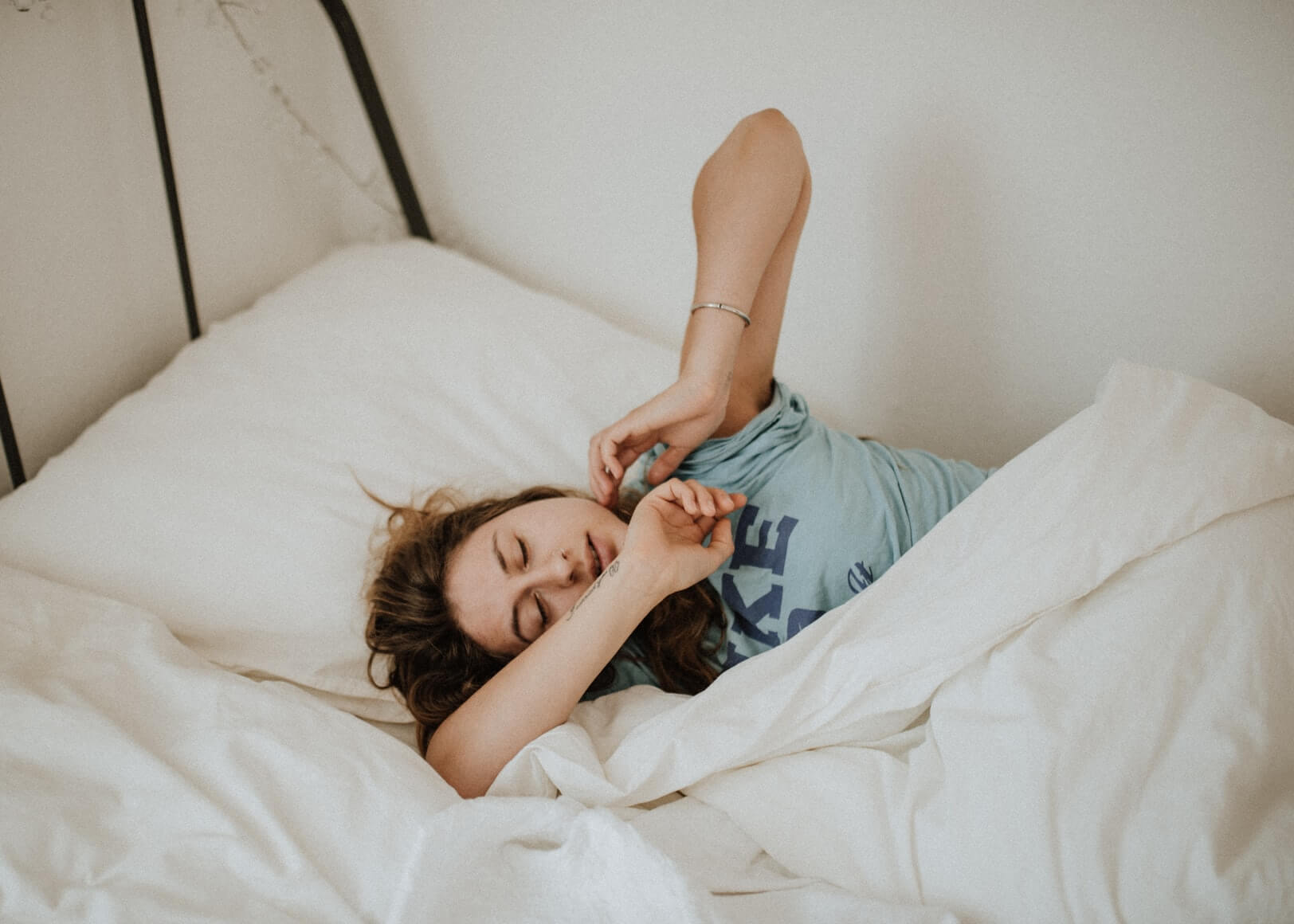
On top of this, ensuring that you get 7-9 hours of sleep a night will ensure you will have a steady routine, and will help you to sleep better going forward.
Have A Comfortable Bed
It may seem like an obvious point, but it is something that can be overlooked. Having a comfortable bed will help you to sleep better.
Whether that’s ensuring your mattress isn’t too hard, or your pillows aren’t too high. If your brain associates the space with comfort and sleep, you will look forward to a restful night and find it easier to nod off.
Ensuring your duvet is right for you is also a good starting point. A duvet such as our Supreme Duck Feather & Down Duvet.
Reduce Blue Light Exposure
Many people can be tempted to go to bed, and endlessly scroll. Whether it’s FaceBook, Twitter or TikTok – we’re all guilty of a bit of social media. Electronic devices all emit a blue light, which is bad for our sleep.
Your body follows a circadian rhythm, which is an internal princess that your brain follows across a 24 hour period, reacting to external factors to create a sleep-wake cycle. The backlights of our phones, TVs and laptops mimic the blue light of daytime.

Therefore watching this before bed means your brain assumes it is day, and blocks the need for melatonin – a naturally occurring sleep-inducing hormone. The less of this we get, the less able we are to sleep.
Take A Bath Or Shower
Taking a warm (not hot!) shower or bath has been proven to aid a good night’s sleep. Taking a shower or bath one to two hours before bed can help to improve blood flow and reduce blood pressure.
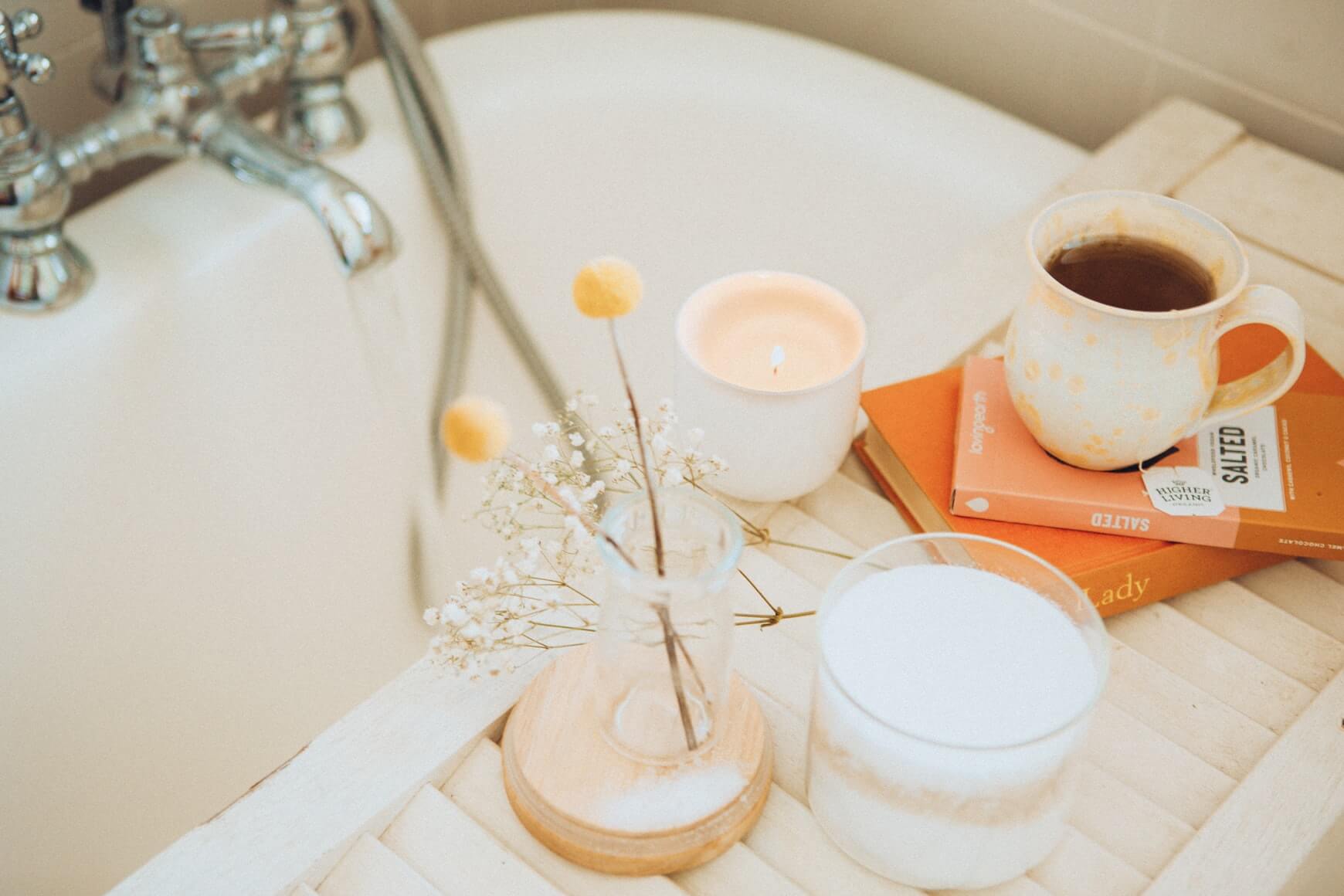
This helps to destress and relax, and can help you fall asleep faster. A warm shower helps you to regulate your body temperature, and reach optimum temperature to help you to sleep more deeply.
Reduce Daytime Napping
When you’re lacking in sleep, it can be tempting to nap during the day to try and stave off that midday slump you’re bound to feel.
However, long naps in the day can prevent you from sleeping in the evening. This is due to you not being as sleepy when going to bed, and it creates a break from the routine we mentioned above.
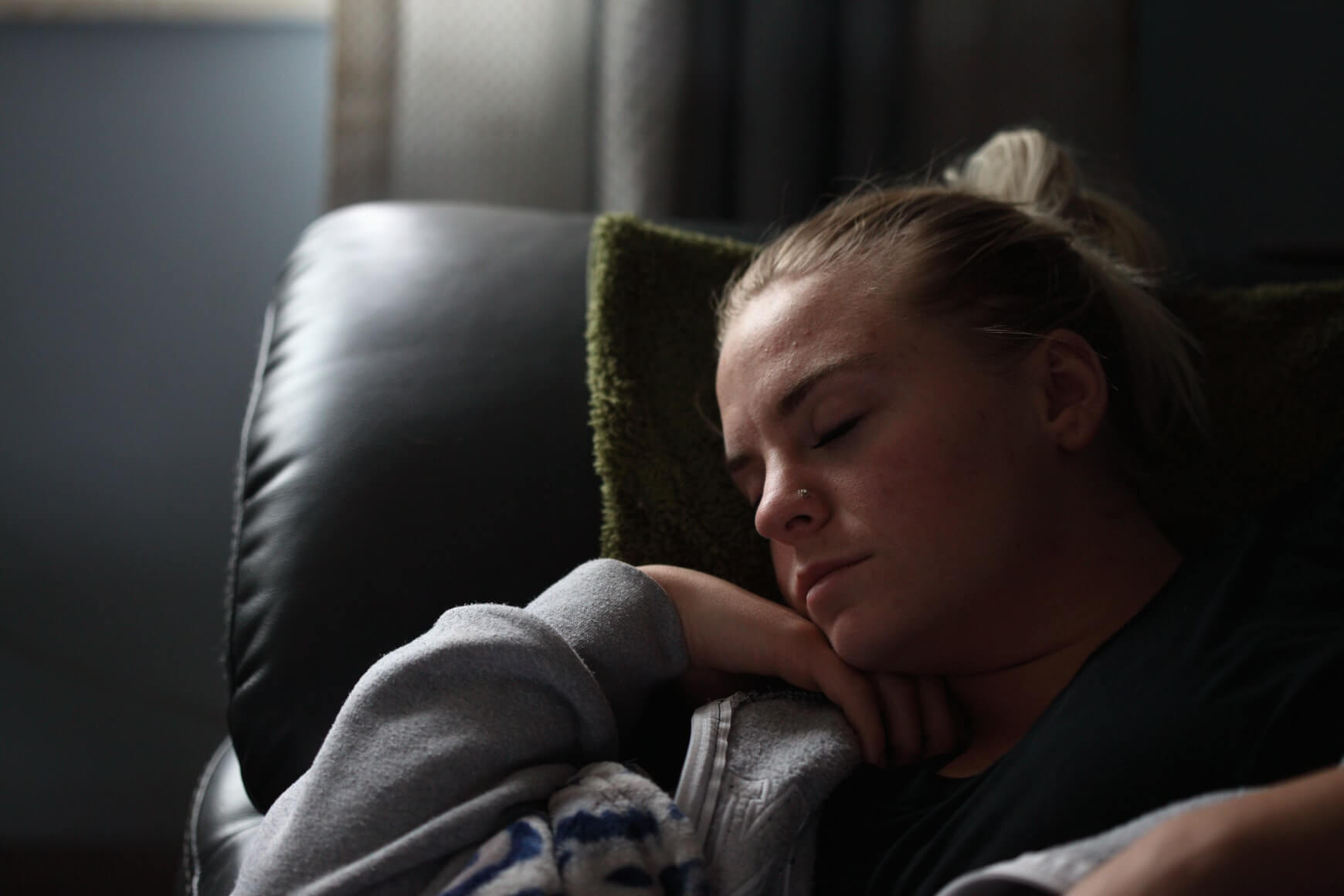
Short naps of twenty minutes or less can be beneficial if you really need a rest, but any more than that can cause an effect on your bedtime rest.
Invest In Curtains
From the sun rising earlier in the summer, to bright street lights outside your window – external factors play a big part in sleep. Especially when it comes to sleep.
Blocking out light can significantly increase the quality of your rest, and will help you sleep better. Exposure to light will signal to your brain that it is time to wake up, meaning that during the peak of summer – you may struggle to sleep in the earlier hours. Or, if you have bright lights outside your window, your brain will receive the same signals.
Investing in curtains that sufficiently block out light will see your ability to sleep improve.
These Catalonia Jacquard curtains are a stylish ocean blue with a luxurious shine. The darker colourway will help to block light along with the heavy brushed lining.
Get Exercise
Ensuring you exercise in the day can mean the difference between a good night’s sleep and a night tossing and turning.
Exercise can mean your mind and body get a better level of slow wave sleep. This is a deep sleep where your mind and body can rejuvenate and help you feel truly rested.
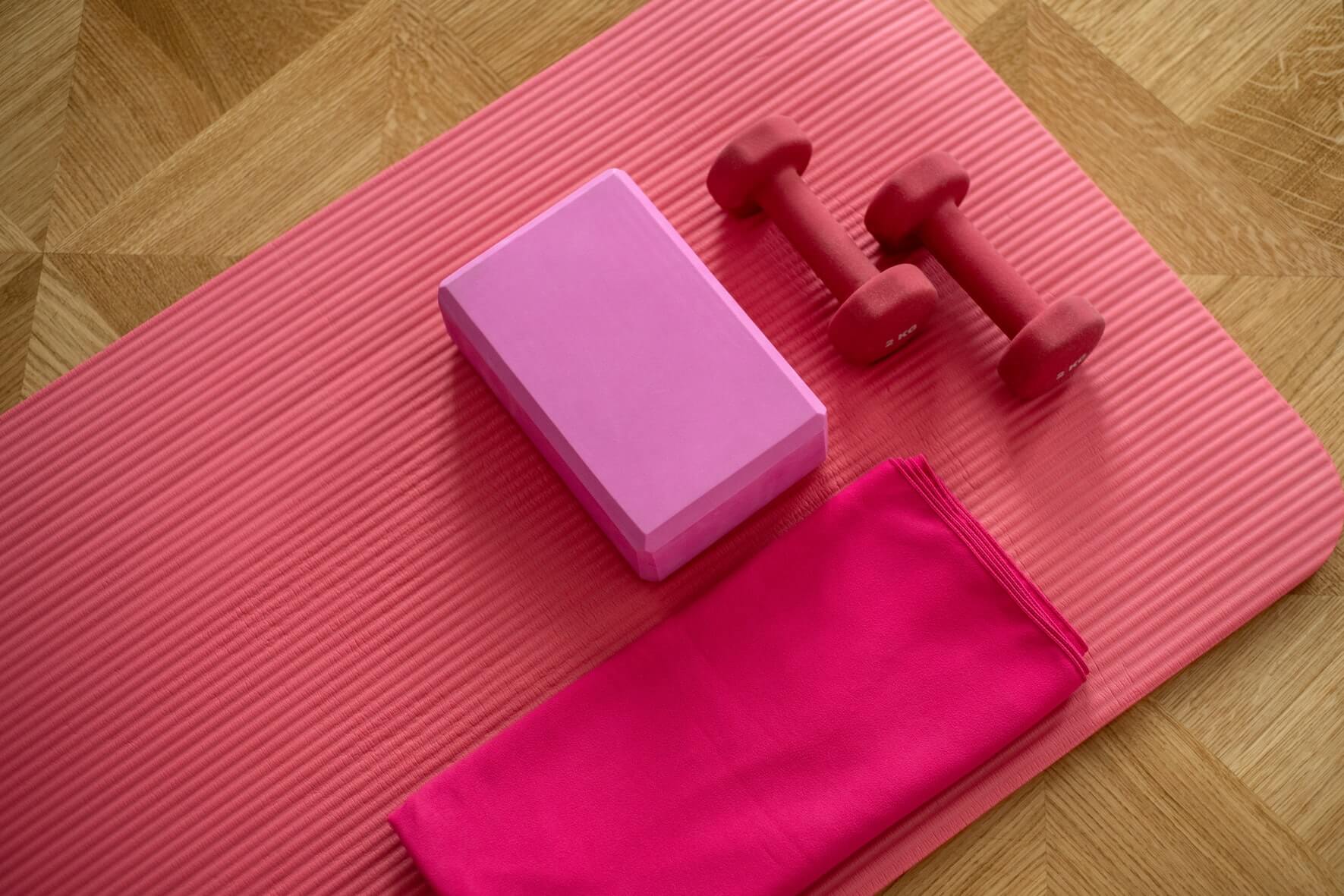
On top of that, exercise during the day can reduce tiredness for those days when you haven’t got a great amount of sleep. Endorphins are released from moderate to vigorous exercise, so even going for a walk can improve your sleep.
Thoughts?
Sleep is something we all rely on, for our health and wellbeing. Try out our top eight tips above, and let us know if you see an improvement in your sleep.

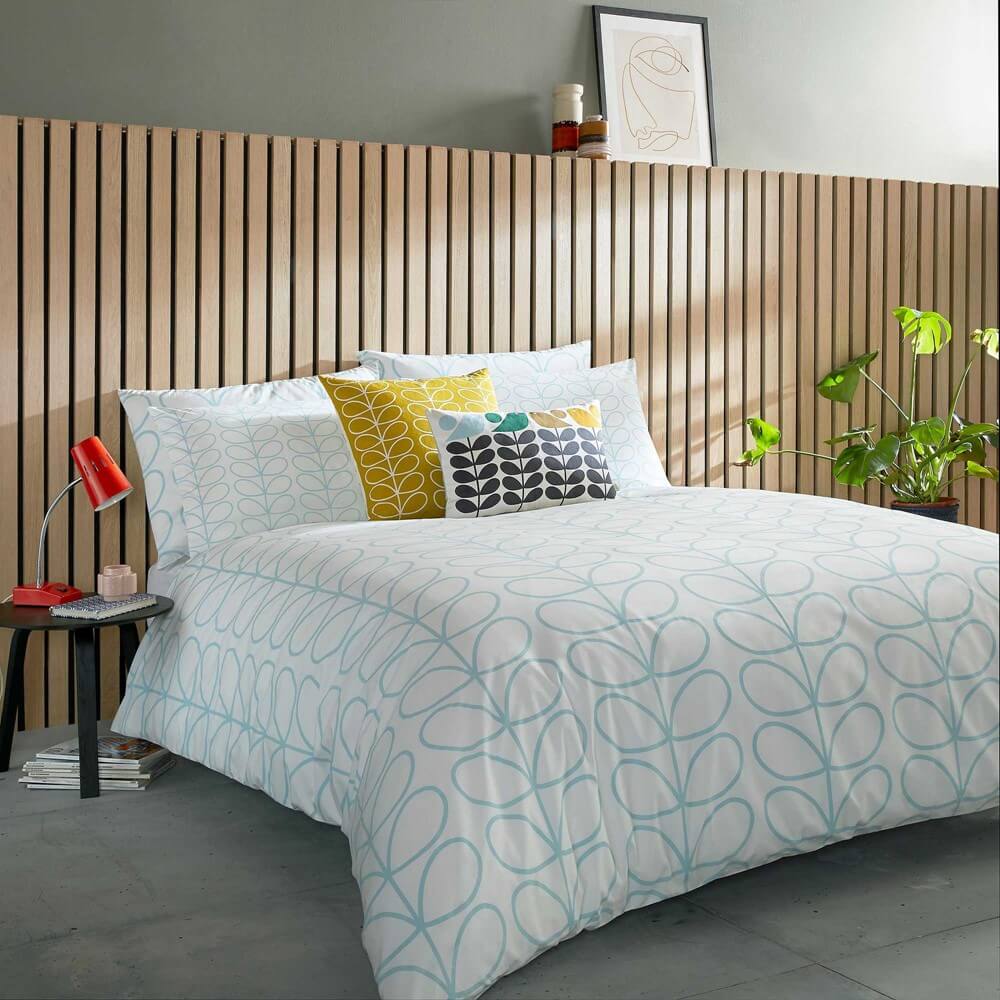

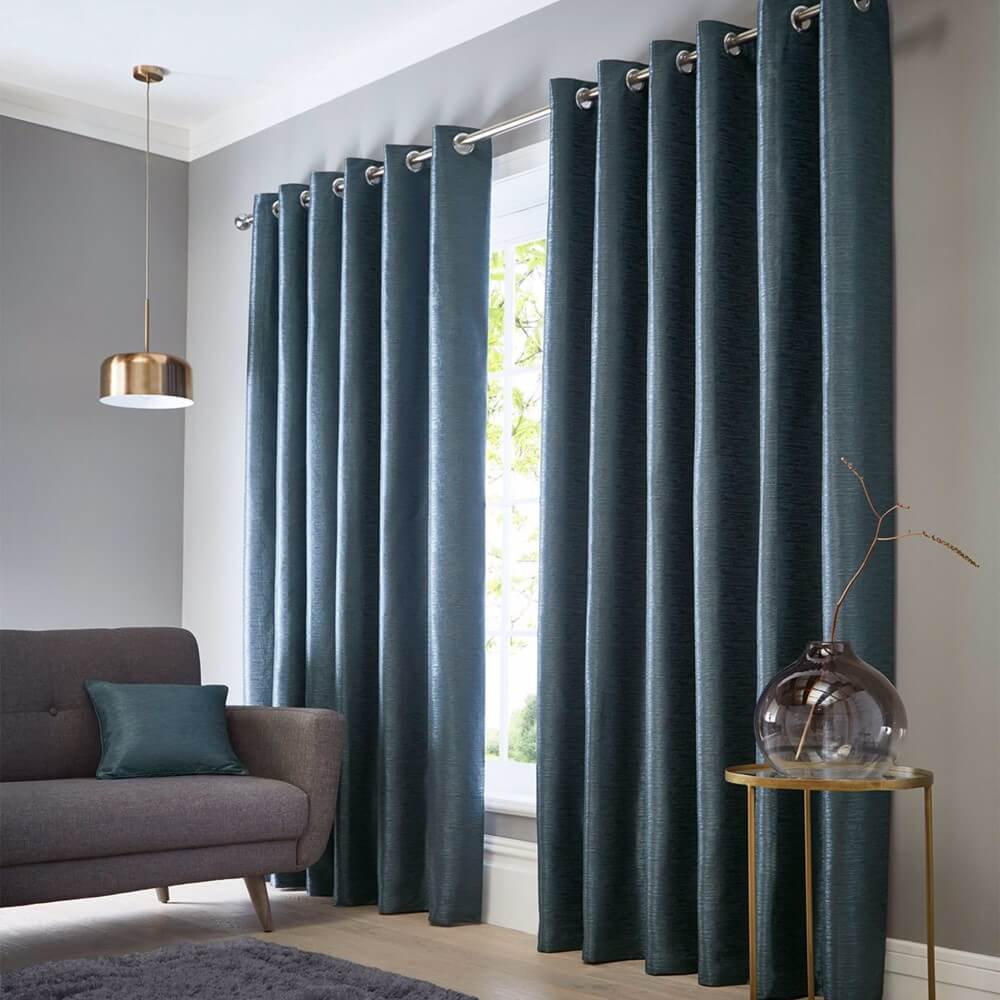
Leave A Comment